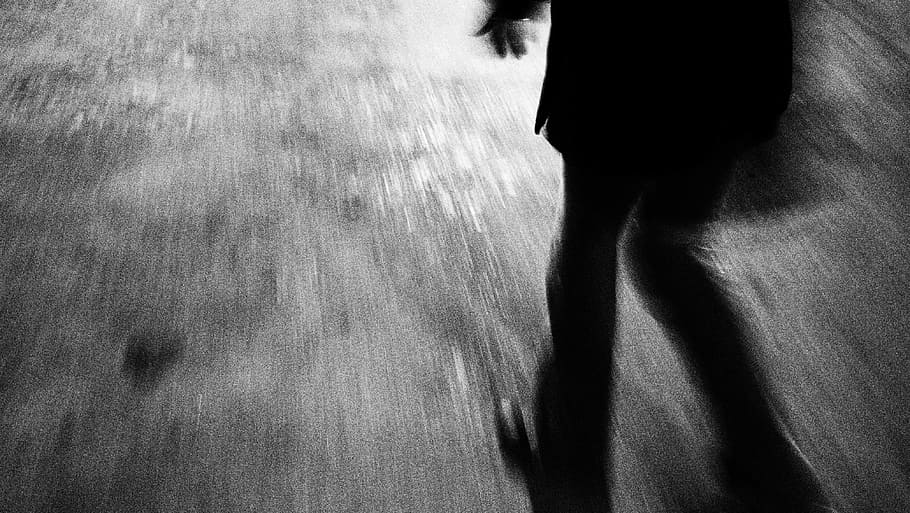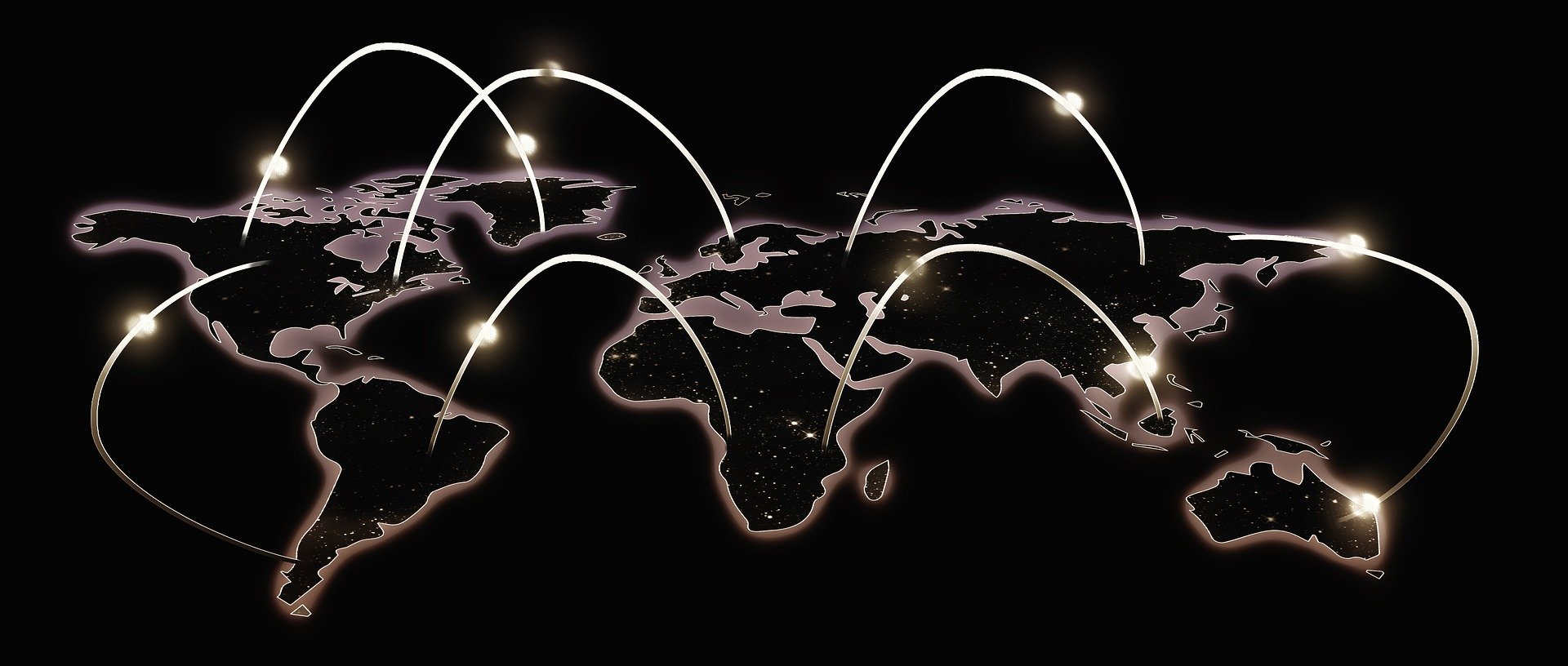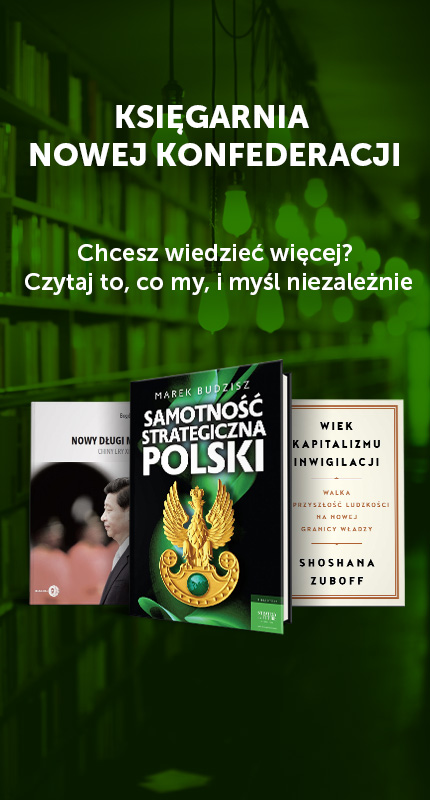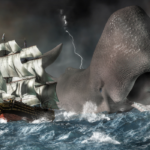
Nie masz czasu na zapoznanie się z całością artykułu?
Wystarczy, że klikniesz ikonę „oznacz artykuł do przeczytania później”. Wszystkie zapisane publikacje znajdziesz w profilu czytelnikaCoronavirus – an aggressor in the Palace

“We are at war,” said French President Emmanuel Macron in a television message of 16 March 2020, commenting on the extraordinary measures taken in connection with the epidemic. “This is indeed a «war» – a type in which people do not die en masse and material goods are not destroyed,” agreed Marek Belka, former Prime Minister and Head of the National Bank of Poland. “If the epidemic is deep and long – the point of reference should be a war economy rather than recovery after a natural disaster,” said well-known economist Ignacy Morawski. Similar views are expressed in many countries.
SARS-CoV-2 Supersoldier
In what sense can the fight against a virus be a war? Is it just a metaphor or something more? Let’s skip the biological weapon attack option – not impossible, but for now without convincing evidence and clear beneficiaries. The similarities of the economic consequences of the pandemic already pointed out by economists show that this is not just a metaphor. On the other hand, war is a state of relations between countries, or at least between people (as in the case of the “war on terror”). Of course, the microorganism called SARS-CoV-2 does not meet these criteria, and yet it is being increasingly regarded as a microscopic super soldier that defeats not only individual, but also social immune systems. Looking at the increasingly violent, chaotic and panic reactions of the leaders of the United States, France or Spain, who until recently ostentatiously disparaged this enemy, at the scale of countermeasures and the drastic impact of possible effects – it would be hard to deny that the virus has brought the Western world to its knees.
In Italy alone, it has already killed more than twice as many people as the terrorist attacks in 1998-2017 across Europe. And this number is growing quickly. The virus paralyses healthcare systems, posing a threat of humanitarian disasters in the very centres of the most developed countries. It has led to the inactivity in large sections of economies, closed borders and disrupted global production chains. It is a very dangerous enemy.
The post-political pride of the West, so visible in the statements of Donald Trump, Emmanuel Macron and other leaders during the first phase of the epidemic made this stage of “war” against SARS-CoV-2 in the Western world much worse than in East Asia
In the past, great epidemics have also affected the richest countries, entailing severe consequences, but not causing such shock as the current coronavirus. Mainstream debate concepts are not enough to describe this phenomenon. We need political philosophy here.
A deadly pandemic is a phenomenon in the field of primal politics. Modern countries were created mainly to protect residents from violent death – argued Thomas Hobbes. We should clarify: not completely, but to significantly reduce the scale of tragedies. Carl Schmitt added that the source motive of state and politics is the possibility of war and the prospect of violent death at the hands of the enemy. But none of them meant infectious diseases and the germs that spread them. Modern countries learned to fight the latter with unprecedented effectiveness as late as in the 19th and 20th centuries, achieving the proficiency to eliminate major epidemics among highly-developed societies. In this way, the improved standard of living integrated healthcare into the elementary functions of the state. The last prominent threat in the West was the HIV virus in the 1980s and 1990s, but its very limited infection capability made it less frightening than the former plague, smallpox or Spanish flu.
The end of post-politics?
The sense of security established by decades of experience has lulled the vigilance of the West – Europe in particular. This applies to both classic armed aggression (with the exception of terrorism) and the “war” against germs. Deadly pandemics, still raging in Asia and Africa, were deemed to be essentially controlled. “Europe thought it was not threatened by the Asian Covid-19 scenario. The sense of security reduced our vigilance. Only the drama of Italy changed the «such things happen only in developing countries» narrative,” says health expert Maria Libura, who works with “Nowa Konfederacja”.
In other words: The West, especially Europe, entered into the post-political stage during the long period of security and prosperity, starting with the triumph in the Cold War. The source motive of politics, which is dealing with the prospect of violent death, was declared obsolete, opening a long list of minor things to do. According to André Glucksmann: “the end of ideologies, say goodbye to lofty matters” – now only the actors «who care about growth and development» count”. “After the breakthrough, weak reasons, such as pure caprice and personal taste, had to assume the role of strong reasons, previously fulfilled by imperative shortage” added Peter Sloterdijk. Therefore, it became possible to indulge in a consumption orgy, and focus the public debate on how to improve that orgy. And so it happened. The process was undoubtedly reinforced by the belief of civilisation superiority (formerly strictly racist) cultivated by the West.
The return of the risk of sudden death – or rather a clear reminder of it – means the return of classic political questions. Why do we need the state? Why do we need politics? How to ensure safety to people? How do we reconcile it with freedom?
The problem is that this revolution has never happened in the very nature of politics, but only in the political imagination of Westerners. It falsely universalized what is particular and transformed temporal and historical ideas into everlasting ones. The long time of peace in the West was caused primarily by the fact that no one had an interest in starting a war. It led to the false conclusion that the time of wars in the developed world is gone forever. For a long time it has been debunked by anti-Western terrorism – a quasi-war form of violence of the weaker against the stronger – but not strongly enough to break the pyramid of illusions.
The same goes for germs. The rapid progress of medicine has allowed to minimise the risk of major epidemics and focus on civilization diseases. But bacteria and viruses evolve, upgrading their attacks on our bodies, like barbarians improving the besieging methods. Health care expert, Dr. Stanisław Maksymowicz, told “Nowa Konfederacja” that we could enter the phase of the biological cycle, in which the roles in the eternal struggle between the Westerners and germs have been reversed: the ball is again in the court of microorganisms. That would mean two fundamental consequences. First of all – the return to a situation where dangerous epidemics occasionally devastate our countries. Secondly, the need to resume the “arms race” against viruses and bacteria. This applies to pharmaceutical “arsenal” and clinical medicine as well as crisis management.
It is already clear that the post-political pride of the West, so visible in the statements of Donald Trump, Emmanuel Macron and other leaders during the first phase of the epidemic made this stage of “war” against SARS-CoV-2 in the Western world much worse than in East Asia. As I am writing these words, on 18 March 2020, 114 deaths have been recorded in Japan, South Korea, Taiwan, Singapore and Mongolia, inhabited by 206 million people. The death toll is 2,705 people in similarly populated (212 million) Italy, France and Germany. And the Old Continent is still before the peak incidence – the numbers are growing day by day. In addition, it had weeks to observe Asian experiences, learn and prepare. Perhaps the situation will change in the next waves of the epidemic, but this is how the first phase looks like.
The Crystal Palace trembles
The return of the risk of sudden death – or rather a clear reminder of it – means the return of classic political questions. Why do we need the state? Why do we need politics? How to ensure safety to people? How do we reconcile it with freedom? Can we accept the risk of sudden death? How do we respond to it? Still in the middle of a post-political nap, the West is in a worse position than Asia to give good answers.
To better illustrate this, let us again turn to Sloterdijk. Creating the philosophical theory of globalization in the Crystal Palace, he described its highly developed centre as a large hothouse. It is symbolised by the title metaphor, borrowed from Fyodor Dostoyevsky. Seeing the gargantuan building of glass and steel at the World Exhibition in London in 1862, with thousands of crowd attempting to get into the building, Dostoyevsky understood the most important promise of Western modernity. This was the introduction of the entire population into the Crystal Palace. To the monumental hothouse of permanent comfort, where the eternal problem of shortage would be solved once and for all.
Sloterdijk has described the completed project – after World War II, especially after the creation of the European Union. “This gigantic hothouse of détente is dedicated to a cheerful and hectic cult of Baal, for which the 20th century has proposed the term consumerism. (…) The new science of the ultimate is formulated here as the dogma of use.”
The first floor is an unprecedented access to money, entailing the obligation to buy. A resident of the Crystal Palace faces “an abundance of options that absolutely outbids any contribution of one’s own effort – in short: to buy and fuck – as long as they meet the conditions for staying in the space of prosperity, which is to have purchasing power.”
Merits will again become associated with prestige and fame. In the logic of struggle and management of quickly (maybe dramatically quickly) shrinking resources there will be more space for heroes and people who are fundamentally useful, less for those “famous for being famous”
At the second level of coddling, prosperity is stabilised by excluding economic emergencies. Legitimization of a “crystallized” state is no longer freeing the individual from the perspective of sudden death, as Hobbes said, but ensuring “growth and development.”
On the third floor, “stringent expectations for safety are generalized and extended to disruptions and risks associated with private life, such as accidents, illnesses, participation in disasters, etc.” The ubiquitous and compulsory insurances take away the individual’s responsibility for their own fate.
The fourth level of coddling involves new media, which seem to substitute the need for persistent education for easy access to knowledge and equal importance of all content. The most banal expression of postmodern consciousness means as much as an ambitious philosophical treatise. This is accompanied by a far-reaching replacement of the discourse of word by the discourse of image, inevitably leading to the disappearance of abstract and logical thinking.
On the fifth level of coddling, the merit breaks away from fame and prestige. The class of media celebrities “famous for being famous” is symbolic here. This aspect of coddling excludes meritocracy, in which the fame and admiration are a reward for merits.
Expelled from the great hothouse
If Sloterdijk’s description of our coddling civilization is accurate (and in my opinion it is one of the most accurate), after a moment of reflection we will understand that this epidemic strikes at all the essential elements of the Western lifestyle in its present form. At all floors of the Crystal Palace.
Firstly, it rapidly limits access to money. The problem of resource scarcity is already clear, and if the process lasts for many months, it will be drastic.
Secondly, it refutes the idea that individuals have been permanently saved from sudden death, so that we can focus only on “growth and development”. The same goes for the protection against economic emergency.
Thirdly, the removal of responsibility for one’s own fate through the activities of insurance systems has been questioned.
Fourthly, the most problematic issue: it does not seem that the classic written culture will return with its logical thinking. However, it will be the test for the function of media infotainment and the idea that education is unnecessary, since we have the Internet. During the struggle for elementary safety in the coddle civilization, madness and false prophets will certainly spread, but in the end access to reliable knowledge will be much more important than now.
Fifthly, merits will again become associated with prestige and fame. In the logic of struggle and management of quickly (maybe dramatically quickly) shrinking resources there will be more space for heroes and people who are fundamentally useful, less for those “famous for being famous”.
In politics, this primarily means the replacement of the party of “growth and development” with the “party of scarcity and dignity”. However, those who therefore expect a simple triumph of reason and responsibility would be wrong. Established interests and habits naturally seek to recreate the conditions in which they can exist. If the shock is short-lived (2.5-3 months according to the most optimistic of reliable forecasts I know), it will be too weak to result in permanent structural changes. The traumas of these days will be remembered as an anomaly, a bad dream.
If the shock is long-term or repeated many times, the change will be substantial. Still, the old interest and cognitive filters will strive to recreate the conditions in which they might be considered useful, more and more desperately in the difficult situation. Bear in mind Mussolini’s dictum about fascism as a horror that leads to prosperity. The ideas of graciously “letting them die” for our own and common good are still present in our culture. At the same time, the logic of shrinking resources will lead to a brutal struggle for them.
An intermediate scenario would mean a shock strong enough to cause deep self-reflection and systemic changes, but weak enough not to destroy the structure of the world as we know it.
The fight against SARS-CoV-2 is not a war, unless treated as part of a biological war. The virus itself is not an enemy in the Schmittian sense of the word. Such terms are reserved for relations between intelligent beings. Referring to a virus and epidemic in this way is a good metaphor or another devaluation of concepts typical of coddling civilisation.
However, it may have deeper effects than many wars. It means a return to the primal politics. In connection with the latter: it has a close relationship with the readiness – or lack of readiness – of political communities for literal war understood classically. Like war, or even more so, it is a risk of sudden death. The Western world has forgotten that such thing is even possible.
Translation financed by the National Freedom Institute – Centre for Civil Society Development from the Civil Society Organisations Development Programme for 2018-2030

Tłumaczenie sfinansowano przez Narodowy Instytut Wolności – Centrum Rozwoju Społeczeństwa Obywatelskiego ze środków Programu Rozwoju Organizacji Obywatelskich na lata 2018-2030


Zobacz
The idea of “Solidarity” has been killed in Poland after 1989. Law and Justice fills this space only rhetorically
The tragedy of Poland is that it had to conform to the demands of the international Western community. It had to become aggressively capitalist and corporatist and it could not assert its independence. Jarema Piekutowski interviews Maurice Glasman
Khanna: Just because I'm a geopolitician by education, does not mean I'm an ideologue. Conectivity today is a battlefield for influence
Is Parag Khanna the second Fukuyama? Will we see a brutal race for the greatest possible connectedness? Or will conectivity bring peace, reduce the number of classic warfare? What will be the role of the West in this competition, and how much will the Belt and Road initiatives mean? Will nation-states fade away in favor of tribalism?
A Tale of Two Monsters and Four Elements: Variations of Carl Schmitt and the current global crisis
We have a class of scientific technocrats directing the work of a class of politicians without honour, who utterly subordinate everyone else. Only a spiritual revolution will save us now
India is, and will be a non-aligned power in the New Cold War
India is a non-aligned power; this move not only protects its own varied relations (as seen with India-Russia ties and even India-China bilateral) but also allows it to provide guidance and support to smaller economies in Asia and the Indo-Pacific
The Sino-Russian relationship should not be seen as an alliance of revisionist powers
Chinese do not feel comfortable with the seemingly endless “endism” produced by Western intellectual elites, be it Fukuyamanian “end of history” at the end of the Cold War, or the recent variant of the “end” of the so-called liberal international order (LIO)























